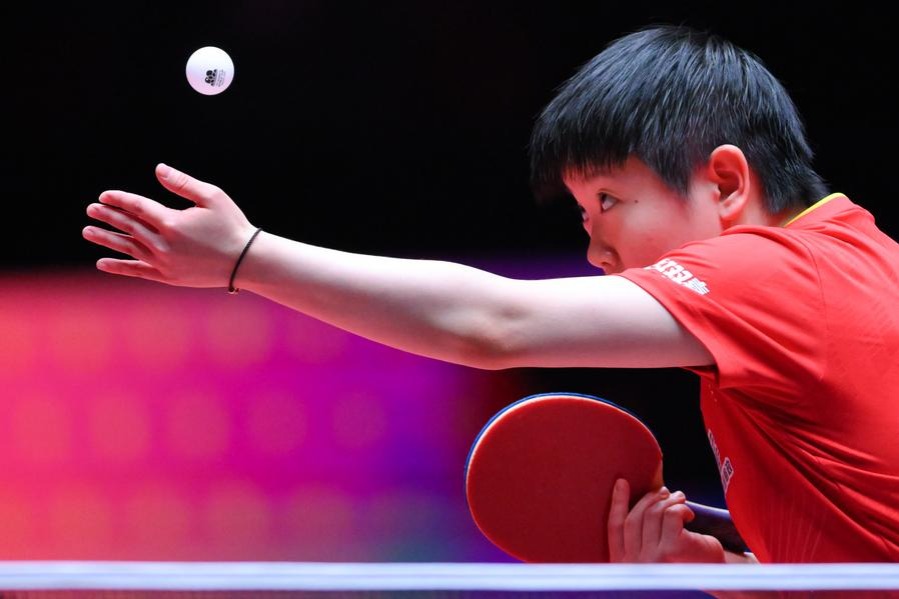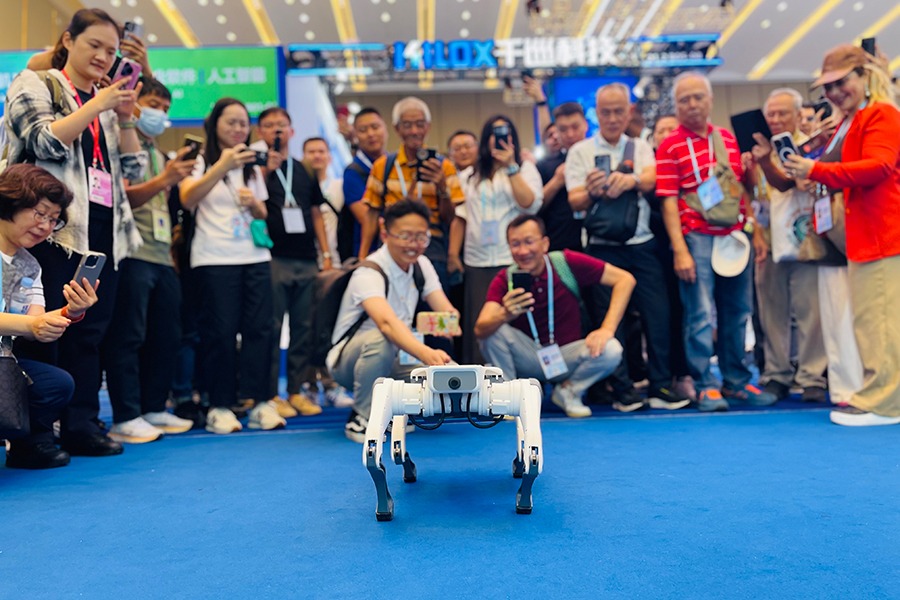It's time US took a leaf out of China's book


In 1848, Jean-Baptiste Alphonse Karr, the celebrated French novelist, observed that "the more things change, the more they remain the same". This observation applies with special force to US foreign policy.
As a young student during the 1960s, I was taught that the United States was fighting for "freedom" and "democracy" in Vietnam, while supporting other "democracies" overseas. But I was taught lies. South Vietnam was a corrupt dictatorship. And the US' support for the region's dictators was not limited to South Vietnam. For example, the US also propped up the then authoritarian regimes in "Free China" (Taiwan) and South Korea.
US collaboration with authoritarian regimes
As a university student, I was taught that such inconsistencies in US policy could be attributed to the practice of "realpolitik", a foreign policy approach based on practical concerns rather than moral considerations. According to this interpretation, the US' actual goal was to stop the spread of the Soviet Union — not to promote democracy.
With the collapse of the Soviet Union in 1991, some predicted that the US might change its behavior. As one US official observed, human rights might be taken off the "back-burner" of foreign policy. But this never happened. Rather, the US continued to collaborate with numerous authoritarian regimes, while criticizing, demonizing and destabilizing other governments.
Some have sought to explain this phenomenon. According to the "dictatorship hypothesis" of Kent Calder, director of Edwin O. Reischauer Center for East Asian Studies at Johns Hopkins University, the US "tends to support dictators in nations where it enjoys basing facilities". And as Washington has far more foreign military bases than any other country, it props up a lot of authoritarian governments.
Given its unfortunate experience with imperialist powers in the 19th and early 20th century, China has long refused permission for foreign forces to station troops on its soil. Although China has supported some of the US' international initiatives, it has never served as a "pawn" in Washington's "chess game", let alone granting it basing privileges. Which made China an easy "target of opportunity" for some US politicians and media outlets.
Gross interference in internal affairs
For the past year, Washington has criticized Beijing for the tragic events unfolding in the Hong Kong Special Administrative Region of China. The US Congress continued to support the turmoil even after demonstrations turned violent.
Some American lawmakers appeared to goad on protesters. In October 2019, for example, Senator Ted Cruz (Republican, Texas) flew to the SAR and dressed in black to express his "solidarity" with demonstrators. He defended his interference in China's internal affairs by explaining that "the people of Hong Kong are engaged in an existential battle for liberty and they should know … that the people of America stand with Hong Kong". Like most other lawmakers, Cruz had little to say when protesters trashed the University of Hong Kong, set a man on fire and committed other violent acts.
Fast forward to the turmoil rocking American society today, and you can see the hypocrisy of Congress on full display. Those same lawmakers who praised Hong Kong's turmoil exhibit little tolerance for lawlessness at home. Appearing on Fox News on June 2, Cruz exclaimed that "rioting cannot be tolerated, it cannot be allowed and we need strong leadership from the president". He has called for Antifa, a self-proclaimed anti-fascist organization involved in many civil disobedience-related disturbances, to be officially branded a "terrorist organization".
American politicians need self-introspection
Clearly, the time has arrived for US politicians to stop the hypocritical finger-pointing and engage in some thoughtful reflection. If US lawmakers are genuinely interested in Hong Kong's internal affairs, they ought to ask themselves why there are no disturbances in the neighboring Macao Special Administrative Region, a former colony located only a short commute from Hong Kong, which also practices "one country, two systems".
As it happens, housing is roughly 33 percent cheaper in Macao than Hong Kong. Also,wages are higher in Macao than Hong Kong. Unlike Hong Kong, young people in Macao can find affordable housing and better jobs. Might such considerations help explain the unrest and violence in Hong Kong? Are there any lessons for Americans to be learned here?
Within the US, economic factors might go a long way toward explaining why some peaceful protests against police brutality degenerate into looting, burning and senseless violence. As a recent study by the Pew Research Center observed, in the US, "economic inequality, whether measured through the gaps in income or wealth between richer and poorer households, continues to widen". The cost of education has skyrocketed, and other ladders out of poverty have become increasingly out of reach for many Americans. A sense of hopelessness now pervades large swaths of major US cities (and rural areas). And all of this is happening while the Chinese government has vowed to eradicate abject poverty by the end of this year.
China's achievements receive no attention
In five short years — between 2012 and 2017 — the Chinese mainland's poverty rate dropped from 10 percent to 3 percent. According to China's official statistics, the government has lifted more than 800 million out of poverty during the past four decades. This cannot be dismissed as propaganda. As one who lived in China 30 years ago, I've seen the remarkable changes. But such progress and the Chinese government's drive to reduce poverty receive little or no attention from US politicians and media pundits. Rather, they prefer to engage in "China bashing".
Governments will always have differences. The US trade dispute with China is one such example. But quarrels must remain on a sensible level. Politicians in Washington need to abandon the tendency to engage in bombastic rhetoric about a "China threat" and face up to reality. Like most other countries, China's political system differs from the US system and has its own set of problems. Those problems are China's problems — not the US' problems. We have our own troubles. Clearly, the time is long overdue for the US to get its house in order. As a first step, the US should follow China's example and launch a new war on poverty. It's worth the effort.
The author is a distinguished professor and the James Morris Endowed professor of political science at Missouri State University. The views expressed in this article are his own and do not necessarily reflect those of the Missouri State University or China Daily.



































